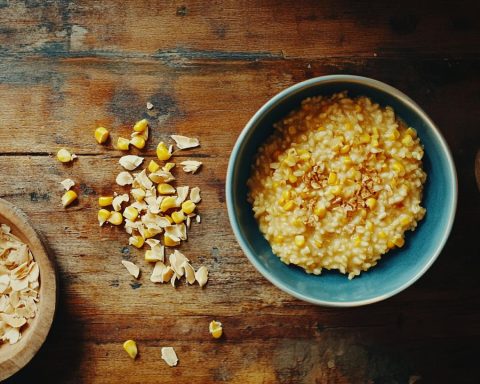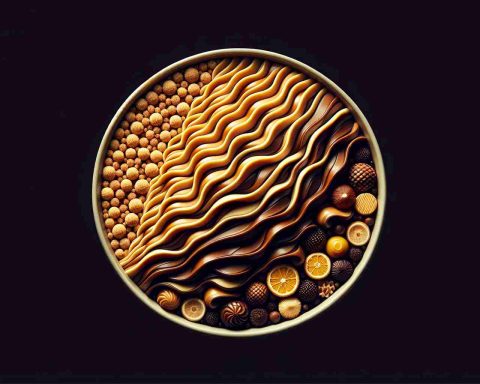Delicious Korean Kimchi with Vibrant Vegetables
Kimchi is a traditional Korean dish made from fermented vegetables, primarily napa cabbage and Korean radishes, with a variety of seasonings. It’s known for its distinctive flavor, crunchy texture, and a remarkable depth of taste created through fermentation. Kimchi is rich in probiotics and vitamins, making it not only a flavorful addition to any meal but also a nutritious one.
Ingredients:
– 1 medium napa cabbage, about 2 lbs
– 1/4 cup sea salt
– 5 cups water
– 1 medium daikon radish, julienned
– 4 green onions, cut into 1-inch pieces
– 1 medium carrot, julienned
– 1 tablespoon ginger, minced
– 5 cloves garlic, minced
– 2 tablespoons Korean red chili pepper flakes (gochugaru)
– 1 tablespoon fish sauce (optional for vegetarians)
– 1 tablespoon soy sauce
– 1 tablespoon sugar
Instructions:
1. Prepare the Cabbage: Cut the napa cabbage lengthwise into quarters and then into bite-sized pieces. Place the cabbage in a large bowl and add sea salt. Toss the cabbage with the salt until well coated. Let it sit for 1-2 hours, turning occasionally to ensure even salting.
2. Rinse and Drain: After the cabbage has softened, rinse the cabbage thoroughly under cold running water to remove excess salt. Drain well and set aside.
3. Prepare the Vegetables: In a separate bowl, combine the julienned daikon radish, green onions, and carrot. Mix in the minced ginger and garlic.
4. Make the Chili Paste: In a small bowl, mix together Korean red chili pepper flakes, fish sauce (if using), soy sauce, and sugar to create a thick paste. Adjust the amount of chili flakes according to your desired level of spiciness.
5. Combine All Ingredients: Add the drained cabbage to the bowl with the vegetables. Pour the chili paste over the top and use your hands (wear gloves to protect your skin) to mix everything together thoroughly, ensuring that the vegetables are well coated with the paste.
6. Pack the Kimchi: Pack the kimchi mixture tightly into a clean, airtight glass jar or fermenting container. Press down firmly to remove air pockets and ensure the brine covers the vegetables.
7. Fermentation: Leave the jar at room temperature for 1-2 days to start the fermentation process. You might want to place a tray under the jar to catch any overflow. After 1-2 days, transfer the jar to the refrigerator. The kimchi will continue to ferment and develop flavor over time.
8. Enjoy: Kimchi can be eaten fresh, but it tastes best after it has had some time to ferment. Try it after a week to see how the flavors have developed. Serve as a side dish or incorporate it into other recipes for added flavor and spice.
This homemade kimchi recipe delivers a perfect balance of spicy, sour, and savory flavors, perfect for adding a kick to any meal.








